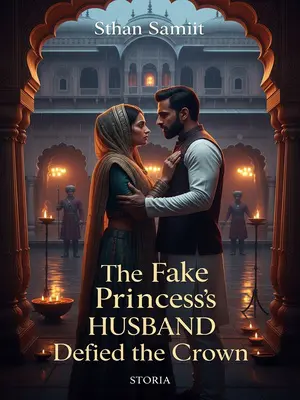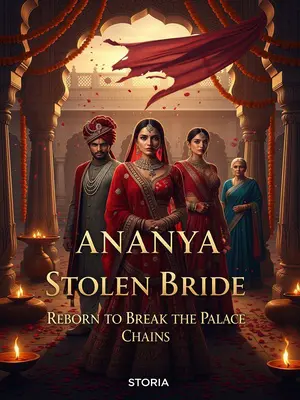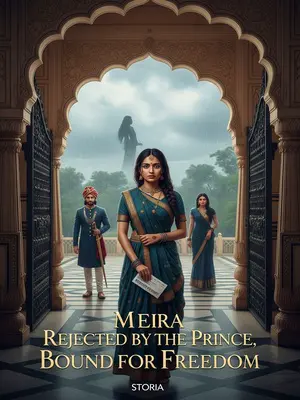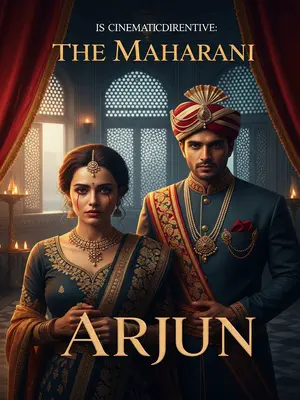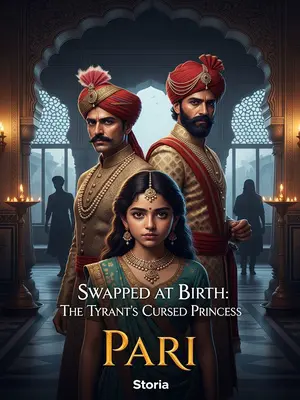Chapter 4: Shadows of the Throne
Our dynasty was founded by my great-grandfather.
The oil paintings in the Durbar Hall tell the story—his stern moustache and steel eyes watch every gathering. The oldest servants still remember the tales of his conquests.
By my grandfather’s time, the country was rich, the army strong.
Under Dadaji, the treasury overflowed. Rajputana swords hung in peace above the mantels. The only battles were over inheritance and mango orchards.
He fathered sons as easily as the neem sheds leaves—so many that the royal astrologer struggled to keep track.
In Father Maharaja’s generation, siblings are too many to count—just the princes who reached adulthood number over twenty.
Family gatherings were seas of turbans, sandalwood in the air, and arguments over chess.
To seize the throne, the brothers fought like tigers and wolves.
The palace still echoes with those stories—hidden daggers, midnight whispers, alliances made and broken like monsoon clouds.
Once, Dadaji summoned Father Maharaja to report on state affairs.
Dadaji was strict—his cane tapped the marble floors, his eyes sharp enough to silence the parrots.
Sixth Chacha secretly spiked Father Maharaja’s chai with something funny.
The old cook whispered about that day—how the chai smelled odd, how the servants exchanged worried glances. It’s the sort of thing that ends up in lullabies meant to scare royal children.
Father Maharaja burned with fever, but dared not leave the hall.
No weakness in front of Dadaji. He sat, sweating through his turban, never asking for water, lips dry as the Thar.
Just then, a palace maid sent by the Rajmata to deliver sweets happened to pass by, and so I was conceived.
Some say fate moves in strange ways—while the palace trembled with intrigue, life quietly began in the cool darkness of the servant’s quarters.
That’s why Maa Sa and I have never been favoured by Father Maharaja.
Every time he looks at us, I sense a shadow cross his eyes—a reminder of humiliation he can’t forgive.
Whenever he sees us, he remembers the humiliation of being set up.
For the Maharaja, nothing stings like public embarrassment—especially from his own blood.
Still, for the Rajmata’s sake, he gave us proper titles—just didn’t care much.
The Rajmata, powerful even in old age, made sure we never wanted for basics. But affection? That was in short supply.
He never visits Maa Sa, never remembers my birthday, never once patted my head.
Other children waited eagerly for their fathers. I learned early not to expect anything, finding celebrations in Maa Sa’s embrace or Kunal’s awkward party games.
Arrey, what’s the big deal?
If every royal child counted slights, the palace would be emptier than the local library during IPL season.
The royal family is the coldest of all—if you don’t have a strong heart, you’ll die of anger.
Maa Sa always warned me, “Yeh mahal hai, Arjun. Yahan aansu dikhana mana hai.” She taught me to swallow disappointment with a sip of sweet chai.
As for Sixth Chacha, his end was truly miserable.
His story is told in hushed tones—how he paced his tiny cell until the day he died, eyes turned toward the desert horizon.
After Father Maharaja took the throne, Sixth Chacha was imprisoned until death, his whole family exiled to a far-off desert.
No one visited, no letters came. Their names were wiped from records, their portraits removed from the gallery.
Struggles for the throne are always life and death.
Every year, the family priest recites the warning: “Raj gaddi ki ladai mein sab kuch haara ja sakta hai.”



